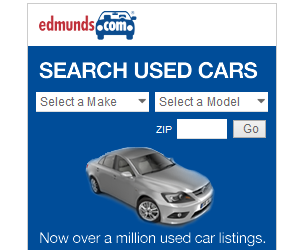Are car companies lying to you?
Valerie Raskovic

Have you ever asked yourself, is the car company lying to you in order to get your business and to increase profit margins? In the current intricate automotive industry, certain recently discovered unethical practices by some of the most popular car companies have raised eyebrows among consumers, unveiling a complex web of professionally orchestrated deceptions. We aim to shed light on some of these unsavory practices within the automotive industry, ensuring that consumers are well-informed when making decisions about purchasing, servicing and selling their vehicles. We've detailed instances where auto companies may not be entirely forthright with consumers, providing a comprehensive guide for individuals navigating the complex landscape of the automotive market.
Excessive & Subscription Fees for Preinstalled Features:
In the automotive industry, a concerning practice has emerged where some companies charge fees for features that are already prewired in vehicles, requiring minimal effort for installation or activation. This practice has garnered criticism as it appears to exploit consumer ignorance or capitalize on the convenience factor. Common examples include charging fees for activating navigation systems, activating heated seats or additional climate control features or enabling connectivity options that are inherently present in the vehicle's design.
As car manufacturers explore opportunities for additional revenue, some of the companies take an extreme approach to generating recurring revenue. For instance, BMW has faced significant criticism for introducing a subscription program that requires users to pay for what many consider to be basic car features, including amenities like heated seats. This move has sparked discontent among consumers who argue that certain features, traditionally included in the base price of a vehicle, are now being compartmentalized and monetized through subscription models. Critics assert that such an approach seems to prioritize profit over customer satisfaction, creating a contentious shift in the automotive industry's pricing and service structure. The move by BMW has ignited discussions about the implications of subscription-based models on the overall affordability and value proposition of luxury vehicles.
These types of practices have not only raised ethical concerns but also foster a sense of distrust among consumers who anticipate fair pricing from the car companies they have long trusted and, in some instances, revered. As the automotive technology continues to evolve, the need for ethical practices and transparent pricing becomes increasingly paramount to maintain a positive and trusting relationship between manufacturers and consumers.
If you're considering a new vehicle, make sure to thoroughly research the car to ensure that it comes with the desired options. Whenever possible, avoid paying any monthly subscription-based fees for basic vehicle features.
Purchase Junk Fees
The term "car company junk fees" refers to additional and often undisclosed charges imposed by car companies during various stages of a transaction, such as purchasing, leasing or financing a vehicle. These fees, sometimes considered extraneous or excessive, can catch consumers off guard and significantly impact the overall cost of the vehicle. However, it’s crucial to distinguish the car company from the dealer because, during the purchase, most junk fees are typically imposed by the dealer or seller. However, it's essential to be aware that certain car manufacturer fees may also be added to the window sticker.
Car manufacturer-imposed junk fees may include charges for proprietary software upgrades, additional customization options or undisclosed brand features that are not part of the standard package. It's important for consumers to carefully review the itemized breakdown of fees to understand the specific charges associated with the manufacturer.
In the majority of cases, these fees are not deceptive, as they are integral to the overall vehicle cost. However, situations where fees are undisclosed or presented as optional extras without the possibility of removing them from the vehicle are generally considered deceptive practices.
Redefining “Lifetime”
The interpretation of "Lifetime" by car companies often diverges from the conventional understanding. While individuals typically associate "lifetime" with the duration of a human life, car companies tend to align it more with the expected lifespan of the vehicle or the coverage period of a warranty. This nuanced difference can lead to misunderstandings, as consumers may anticipate a more extended duration than what the automotive industry specifies, emphasizing the importance of clarifying the context in which the term "lifetime" is used in the automotive realm.
One popular example of this type of practice is observed in the Jatco CVT transmissions found in many late-model Subarus and other brands. Subaru asserts that the CVT transmission in their vehicles utilizes lifetime fluid and doesn't furnish any service guidelines. This is justified by Subaru based on the normal life expectancy of the fluid under regular driving conditions, estimated to be between 80,000 and 120,000 miles. Since this duration surpasses what Subaru considers the lifetime of the vehicle, they argue against the need for service instructions within that timeframe. The truth is, as discovered by many independent automotive technicians and shops, the longevity of the transmission drastically increases when the fluid and filter are changed every 35,000 miles. In instances like this, more frequent service intervals have demonstrated effectiveness in preventing potential catastrophic breakdowns and mitigating the need for costly repairs in the future.
Omitting certain long-term service notifications from the service schedule allows manufacturers to potentially lower the initial cost of ownership, presenting an appealing image on paper for unsuspecting new buyers.
Extending service intervals
Similar to the lifetime-related deception, one other common service-related strategy involves extending service intervals, creating a façade of reliability during the warranty coverage period while potentially setting the stage for issues to emerge once the warranty expires. This approach can catch consumers off guard, leading to unexpected and often costly repairs post-warranty.
For instance, BMW suggests oil change intervals of 12,000 to 15,000 miles, citing advancements in modern oil technology that prolong its efficacy beyond traditional change intervals. While it's accurate that today's oil is more advanced and durable than its predecessors, what BMW doesn't disclose is that their recommended intervals do not consider factors like oil consumption and contamination. In reality, this suggested oil change frequency can significantly diminish the engine's longevity, particularly in turbocharged models.
Most independent BMW technicians recommend an oil change interval of 7,500 miles. In some instances, it's wiser to seek advice from your nearby, independent automotive technician who specializes in your vehicle's brand for the most suitable service intervals to adhere to.
Sweeping safety issues under the rug
Typically, most car companies make considerable efforts to steer clear of issuing voluntary recalls. The additional cost of fixing thousands or in some cases, even millions of vehicles can be substantial and has significant implications for a company's financial health and reputation in the market. In certain instances, they may even go so far as to sweep known safety issues under the rug, hoping they won’t come to light.
A notorious example that shook the industry's integrity was the Takata airbag scandal. The revelation that Takata withheld crucial data about faulty airbags, leading to serious injuries and fatalities, illuminated the darker side of corporate practices prioritizing profit over consumer safety. This incident underscores the potential existence of similar practices within the industry, where companies might withhold safety-related information to avoid the financial ramifications of extensive recalls.
As consumers, there isn't much we can do except stay vigilant and regularly check our vehicles for the latest recalls. However, we might never know if the car we drive, especially one transporting our family, harbors a potential unaddressed safety flaw that could jeopardize our lives.
Gaming the System
Additionally, concerns extend to the accuracy of information provided by car manufacturers, particularly regarding fuel economy and emissions. Instances of overstatement have surfaced, distorting both environmental expectations and the economic calculations of consumers who rely on accurate data when making purchasing decisions.
Volkswagen (VW) faced severe backlash when it was revealed that they had manipulated their vehicle software to evade emission testing. This scandal, commonly known as "Dieselgate", involved the programming of certain VW diesel engines to detect when they were undergoing emissions testing and adjust their performance to meet regulatory standards. However, in real-world driving conditions, the vehicles emitted pollutants well above the legal limits. The revelation not only damaged VW's reputation but also led to legal actions, fines and a significant shift in the automotive industry's approach to emissions compliance. This incident underscored the importance of transparency and integrity in adhering to environmental standards within the automotive sector.
As consumers become increasingly vigilant and demand transparency, the automotive industry faces a critical juncture. Striking a balance between innovation, profitability and ethical responsibility is paramount for companies to regain and retain the trust of consumers who place their safety and financial well-being in the hands of these corporations. The push for greater accountability and ethical conduct in the industry is vital for fostering a sustainable and trustworthy relationship between car manufacturers and consumers.
Read more articles

